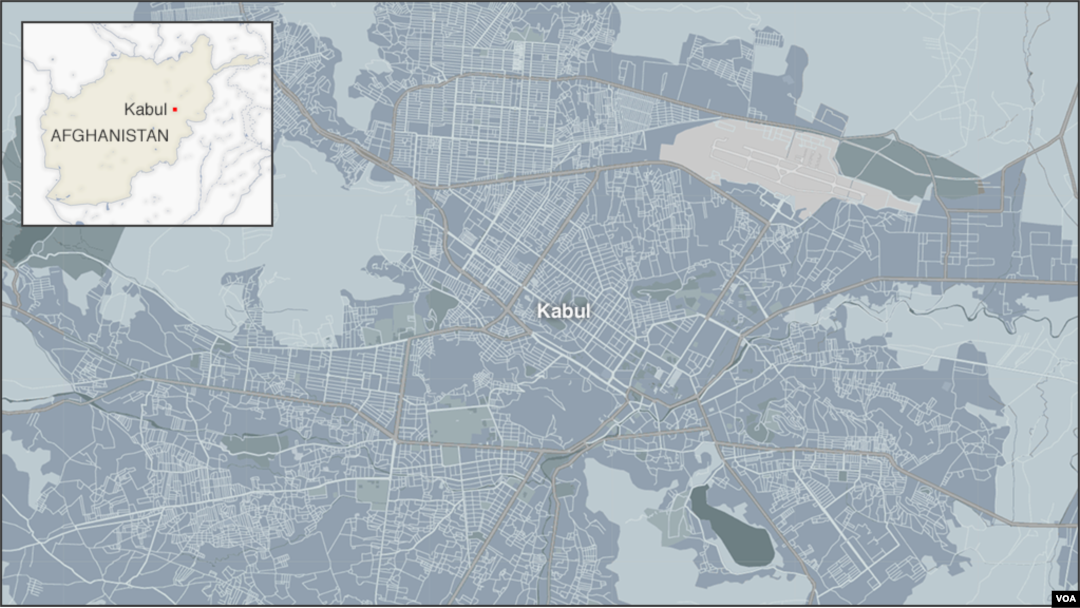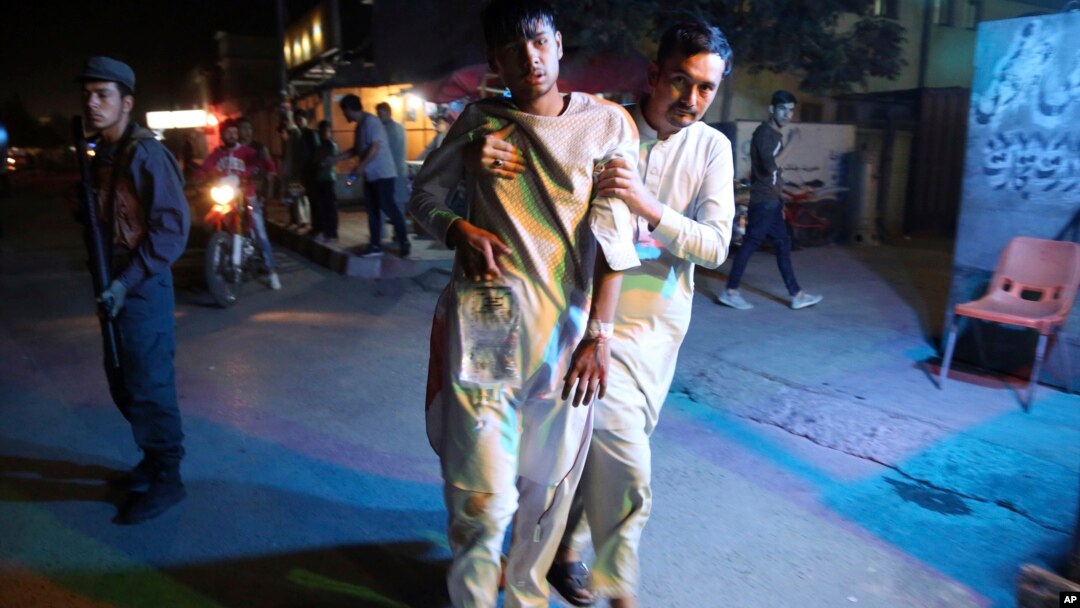Afghanistan mourned Thursday the death of at least 26 civilians, including sportsmen, rescue workers and journalists, in an overnight double suicide bombing in Kabul. Islamic State, via its so-called Amaq News Agency, claimed responsibility for the attack.
The violence occurred Wednesday night in the western Dashti-i-Barchi suburb of the capital, which is densely populated by the Afghan Shi’ite Muslim community.
Health Ministry spokesman Waheed Majroh told VOA that around 100 people were being treated in different hospitals for injuries they sustained in the overnight attack.
Police and witnesses said the first of the two explosions happened when a suicide bomber blew himself up inside a sports center where a wrestling event was underway.
A second bomber detonated his explosives-laden car shortly after police, media and emergency services arrived at the scene of the initial explosion. The car bombing also killed two journalists of the country’s largest private TOLOnews television channel and injured several others.

Hospital officials have described as "very serious" the injuries sustained by two other journalists.
“This latest cynical act of terror targeting ordinary citizens of Kabul, along with first responders and journalists, is deeply shocking,” said Tadamichi Yamamoto, the top United Nations envoy in the country. “We join Afghans in expressing our revulsion at such a callous attack,” said the head of the U.N. Assistance Mission in Afghanistan.
Local and international media rights defenders have denounced the latest fatalities of media workers in Afghanistan, bringing to 13 the total number of local journalists killed since the start of the year, more than any other country during 2018.
In April, at least nine Afghan journalists were among the civilians killed in Kabul when a suicide bomber disguised as a member of the media detonated explosives strapped to his body. The victims had arrived to cover an earlier blast. IS took responsibility for that attack.
"Afghan journalists have shown incredible bravery covering the news while being repeatedly targeted by a cynical enemy," said Steven Butler of the U.S.-based Committee to Protect Journalists (CPJ) in a statement.
Last month, a suicide bombing at an education center in the same Kabul neighborhood killed more than 50 young students and injured dozens more.
An injured man is brought in to a hospital following a deadly attack in Kabul, Afghanistan, Sept. 5, 2018.
Wednesday’s violence came as the Afghan Shi’ite community prepares to commemorate later this month the annual Ashura festival, which mourns the death of a grandson of the Prophet Mohammed.
Afghan civilians continue to bear the brunt of the 17-year-old war between U.S.-backed government forces and the Taliban insurgency and IS-plotted attacks around the country.
The U.N. says the number of Afghan civilian casualties in the first six months of 2018 has already reached a record high.
In the past four years, the world body says, a record 40,000 Afghan civilians have been maimed or killed.
Speaking to reporters Thursday at the end of his two-day visit to Kabul, UN High Commissioner for Refugees Filippo Grandi denounced the overnight deadly attack and called on host nations not to force Afghan refugees to go back to their country.
“Our advice to countries hosting Afghan refugees is very precise; to the neighboring countries, Iran and Pakistan, we continue to insist that returns can only be voluntary; and to countries in Europe - which everyday have to make decisions on asylum requests by Afghan citizens - we say consider carefully conditions in Afghanistan before making that decision which determines sometimes the lives of people,” said Grandi.
UNHCR estimates that Pakistan and Iran collectively still host more than four million registered and unregistered Afghan refugees.


